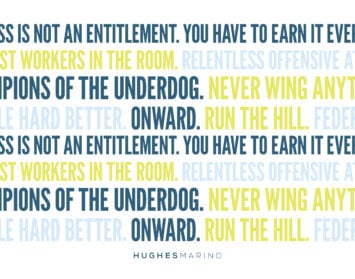Where we are and what comes next
By John Jarvis
Part I – The COVID Crisis & Common Law
We are adrift in uncharted waters. The pathogen currently wreaking havoc around the world is novel, and so is the current economic collapse. I have personally witnessed three prior market downturns, but never before has the global engine of industry been turned off intentionally, by governments, overnight. And now we all have to figure out the rules of this new game. Do tenants have to pay their rent? Do landlords have to pay their mortgage? You know that people are confused and grasping when we start talking about Common Law concepts like Impossibility and Frustration of Purpose.
From The National Law Review:
Whether utilizing the defense of impossibility or frustration of purpose, one of the most important factors that courts consider when deciding whether to excuse performance is whether the intervening event was foreseeable when the contract was signed. If the intervening event was not foreseeable, and the intervening event rises to the level of destroying the object of the contract (if the defense is impossibility) or dramatically changing the expected value of the contract (if the defense is frustration of purpose), it is possible that contractual performance will be excused, even without the protection of a force majeure clause. On the other hand, if the intervening event was foreseeable, absent a useful force majeure clause, the courts may find in favor of strict contractual compliance. Whether or not a pandemic like the current COVID-19 crisis, and the myriad adverse consequences resulting therefrom, was or should have been foreseeable at the time in question is an issue that we expect to be litigated in courts around the country in the near future.

Part II – Lease Contracts
Whether or not the courts ultimately determine that tenants may use these common law defenses as a means to excuse their contractual performance, the point is that we are now suddenly in a very different market. And in this new market, existing real estate leases are subject to renegotiation. That may sound harsh, but it is fundamentally true. It has been reported that WeWork is seeking to renegotiate their office leases, (they occupy 11 million square feet), requesting a 30% immediate rent discount and offering landlords future profit participation in exchange.
This is clever, but desperate, and it signals big declines in WeWork’s business valuation. I am glad, at least, that the public doesn’t own those shares.
OK, so if almost everything is subject now to renegotiation, how do you do it? Well, let’s start with how not to do it—run away from anyone wanting to talk with you about a “Blend and Extend.”
The “Blend and Extend” was a clever notion popularized by commercial agents following the 2008 financial crisis. I have always disliked that phrasing. I don’t want to “blend” my current above market rent with some approximation of a discounted rent in the future, and I certainly don’t want to add more lease term on top of the existing above market lease that I am trying to restructure. No, thank you. In a majority of circumstances, a “Blend and Extend” is a landlord’s trap. It keeps you from ever actually approaching the end of your lease, when you will have significant leverage, and it keeps you from ever getting close to the actual new market rents. Blend and extend? You’d do just as well to “Pray and pretend.”
What’s more, now is a particularly challenging time to restructure a lease. We are still in the midst of the turmoil, and we have almost no visibility as to the length or the depth of this market turn. Renegotiating your office lease right now, while we are shrouded in uncertainty, can feel like trying to catch a falling knife. Don’t try it on your own. Please talk to us first. We have tools and tactics that are working.

Part III – Conflicts of Interest
When the window of opportunity does open to restructure your lease agreement, please don’t use the full-service landlord agency firms to negotiate some foolhardy “Blend and Extend.” This should be obvious, but it needs to be shouted from the rooftops. The full-service agents have a conflict of interest; it’s called dual agency and it should be illegal.
I’ll take you through four examples to highlight why these dual agents are not in a position to advocate for tenants in restructuring leases in the new market paradigm.
Imagine a massive, global, full service real estate company, let’s call it ABCD.
In the first example, imagine ABCD represents your company and recently negotiated on your behalf for a new 50,000 square feet of office space. And now you want to explore renegotiating or restructuring that lease. Except here’s the problem—ABCD is also the building owner. Or at least one of their divisions, let’s call it ABCD Investors, for example, and let’s say they own office buildings all over the world. Your agent at ABCD likely disclosed this conflict, and you likely weren’t worried by it at the time. But now? How can ABCD go to their colleagues at ABCD and tell them it is time to renegotiate the deal. They can’t. Or they won’t. Or if they try at all it is going to be a very awkward and a very short conversation.
What worked then isn’t what is going to work now. There is a better way.
In the second example, ABCD doesn’t own the building, but ABCD instead represents the building ownership as the listing agent. Again, your ABCD agent likely disclosed this conflict, and you likely weren’t worried about it at the time. But now? Your office lease comprises 50,000 square feet, but the landlord owns and lists with ABCD 6 million square feet. Is your ABCD agent able to go back and argue for rent relief on your behalf? They can try, but again the conversation is going to be awkward and short. It just doesn’t work.
In the third example, ABCD recently sold the building to one of their investor clients. These full-service agencies do a lot of this kind of business. (We don’t.) They sold the building based on the value of your lease and your promise to make future rent payments. And now your ABCD agent is going to tell the new buyer that they need to renegotiate? Again, a very awkward and short conversation to follow.
In my final example, ABCD doesn’t own the building, they don’t list the building and they didn’t recently sell the building. But they would like to do all of those things. That is the business they are in. And consider, their recurring revenue from owning, selling and listing buildings is multiple times their potential one-time commission revenue from your 50,000 square foot office lease. Even if the landlord sitting across the table isn’t a client of ABCD, they are a potential client, and that is the problem.
I don’t fault the companies that work with full-service agency firms like ABCD. I get it, the agents are capable and it is so convenient when ABCD has offices all around the world. And businesses have been so busy expanding that nobody really had the time to worry about a subtlety like dual agency and conflicts of interest.
Except now it matters. A lot. What worked then isn’t what is going to work now. There is a better way.
At Hughes Marino, we only represent business owners, not landlords or property investors, and we don’t buy office towers. We help these business owners to make better decisions when they lease, buy and build the buildings that their teams will one day (again) occupy.
We also help these business owners to renegotiate existing lease agreements when conditions warrant such a renegotiation.
Enduring and renegotiating through an economic decline isn’t novel for the team at Hughes Marino. We were built for this.
John Jarvis is a managing director at Hughes Marino, a global corporate real estate advisory firm that specializes in representing tenants and buyers. Contact John at 1-844-662-6635 or john@hughesmarino.com to learn more.











